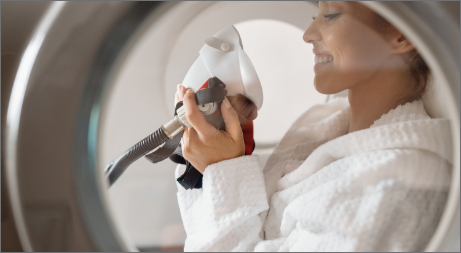Explore the innovative world of Hyperbaric oxygen therapy (HBOT) at the daring Sector 10A facility in Gurgaon, India. Benefit from the healing power of Oxygen in a pressurized chamber designed to aid individuals on the Autism spectrum. Discover a new approach to wellness and experience firsthand the transformative effects of this cutting-edge treatment. Join us at daring Sector 10A and embark on a journey towards improved health and well-being.
Daring to explore new treatments, hyperbaric oxygen therapy offers hope.
Hyperbaric Oxygen Therapy (HBOT) is a cutting-edge medical intervention that harnesses the healing power of concentrated oxygen in a pressurized setting. In this therapy, patients breathe pure oxygen within a specialized chamber, dramatically elevating oxygen levels in the bloodstream. This surge of oxygen accelerates the body's natural repair mechanisms, enhancing cellular regeneration and promoting rapid healing. It’s particularly effective in mending stubborn wounds, reducing inflammation, and revitalizing tissues starved of oxygen due to injury or disease. By increasing oxygen saturation, HBOT fosters new blood vessel formation, enabling better circulation and tissue nourishment. Its application extends from treating chronic conditions like diabetic ulcers and radiation injuries to more urgent situations like arterial gas embolism and carbon monoxide poisoning. Beyond its immediate effects, HBOT acts as a catalyst for the body's defense systems, speeding up recovery in ways conventional treatments often cannot match. This therapy opens new horizons for healing, making it a transformative tool in modern medicine.


Investigating the compelling intricacies of Autistic spectrum disorder.
Autism, or Autism Spectrum Disorder (ASD), is a complex neurodevelopmental condition that affects how individuals perceive and interact with the world around them. Characterized by differences in communication, social interaction, and behavior, autism manifests uniquely in each person, ranging from subtle to more pronounced traits. People with autism often experience sensory sensitivities, intense focus on specific interests, and may engage in repetitive actions. However, many also possess remarkable strengths, such as exceptional memory, creative problem-solving, and attention to detail. Autism is not an illness to be "cured," but rather a different way of thinking and experiencing life. Support and understanding play pivotal roles in helping those with autism flourish, allowing them to leverage their unique perspectives. Early intervention and tailored therapies can enhance communication skills and foster social connections, empowering individuals on the spectrum to thrive within their communities and lead fulfilling, purposeful lives.
Hyperbaric oxygen therapy treat Autistic. Daring advancements in HBOT.
Hyperbaric Oxygen Therapy (HBOT) has been explored as a potential therapeutic approach for individuals with autism, as it may address some of the neurological and metabolic factors associated with the condition. By administering pure oxygen in a pressurized environment, HBOT boosts oxygen delivery to the brain, which can help reduce inflammation, improve cerebral blood flow, and promote neuronal healing. Many individuals with autism experience issues with oxidative stress and mitochondrial dysfunction, and HBOT could help by enhancing cellular oxygenation and supporting overall brain function. Anecdotal reports and some studies suggest that HBOT may improve cognitive function, communication, and social behavior in certain cases, although the degree of benefit can vary greatly among individuals. It’s important to note that while HBOT is not a cure for autism, it can be a supportive intervention for some, helping to alleviate symptoms and enhance quality of life when used as part of a comprehensive treatment plan tailored to the individual’s unique needs.

Highlighting the daring benefits of Hyperbaric oxygen therapy for Autistic individuals.
In conclusion, while Hyperbaric Oxygen Therapy (HBOT) is not a definitive treatment for autism, it shows promise as a supportive tool in addressing some underlying physiological aspects of the condition. By enhancing oxygen delivery to the brain and reducing inflammation, HBOT may contribute to improved neural activity and overall brain health. Some individuals have reported positive outcomes such as enhanced communication, better focus, and improved behavior after HBOT sessions, although responses to the therapy can vary. It’s essential to recognize that autism is a complex, multifaceted condition, and HBOT should be considered as part of a holistic treatment approach that includes therapies tailored to each person’s specific challenges and strengths. As research progresses, a clearer understanding of the benefits and limitations of HBOT in autism may emerge, offering families more insight into whether this therapy could be a valuable addition to their care strategy.
References
https://www.ncbi.nlm.nih.gov/pmc/articles/PMC5471082/
